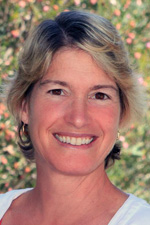By Eva Trieger

SAN DIEGO — “Vibrant” “Engaged” and “Enchanted” were three adjectives that leapt into my mind when I met the teacher, clarinetist and international performer. Alexander Gourevitch and his wife Anna, welcomed me into their Carmel Valley home Friday morning. I was eager to learn about Gourevitch’s upcoming role in the San Diego Jewish Arts Festival, sponsored by the Lipinsky Family, and hosted by the Oceanside Museum of Art.
I had not anticipated the education I would receive in politics, culture and social history in our all too brief meeting. I, like too many of my peers, are only vaguely familiar with the extent of isolation caused by the Iron Curtain. Perestroika had a massive impact, not only internally, but with the new opportunities afforded to the individuals previously ensconced isolated behind that curtain. The fall of the Soviet Union was the gateway for these very people to step beyond the enclosure and strictures of the years between 1917 and 1985. Perestroika was the second birth of Alexander Gourevitch.
Gourevitch’s father and grandfather were both violinists, and though Jews were forbidden to record Jewish music, they circumvented this edict by adapting Jewish music to popular music that was performed live in movie theaters prior to the showing of a film. These were Alexander’s first experiences playing publically. At the time this included music suitable for the Foxtrot and Tango.
A story I found most compelling was the way in which Gourevitch kept his Klezmer roots alive. As a youngster, Alex had played musical gigs with his father. The duo played together at several functions. It was not until his father’s death, in 1979, that Gourevitch realized these pieces were not recorded anywhere, primarily because these were Jewish works. He set out on a tour of Moldova and the Ukraine to learn from the older musicians who remembered this music. In so doing, he found that each performer had his own rendition, style, and composition, but the core of the music was the same. Alex recorded his findings and reworked his own arrangements.
Though classically trained at Gnesins’ State Musical College and Pedagogical Institute, Alexander learned the folk music of his people. “Jewish music is my life…it’s my heart, it’s my soul”, he related. During 25 years, Gourevitch played with the Moscow Philharmonic and the Moscow Radio Bolshoi Symphony Orchestra as well as with different symphony orchestras and klezmer groups in various former Soviet Republica. And finally, in 1993 following the eradication of the Iron Curtain, Gourevitch received an offer he couldn’t refuse.
An invitation came from Tijuana, enticing eighteen Russian musicians to bring classical music to Mexico. The Baja California Orchestra was born. Four of its musicians subsequently formed a klezmer group and have been sharing these enchanting, soulful melodies with the international community. Freilichs, an ensemble directed by Gourevitch, delight audiences today by offering folk music and niggunim, Jewish melodies. Alexander celebrates his bounty by teaching woodwind students at the University of Baja California and at the Baja California Conservatory. Additionally, the clarinetist has performed many times with his daughter, Natalia Vostriakova, an accomplished violin player currently pursuing a degree in Special Education.
Recently, Alexander Gourevitch was honored with a concert dedicated to his fifty years on stage. For this program he selected a program of Jewish Composers. As I watched a few moments of the DVD I was completely awed by how this energetic man consumes the stage and infuses every orchestral instrument with sensation and animation. Though his CDs are not commercially available, Alexander will be happy to make discs for anyone who emails him (gourevitch_alex@hotmail.com).
Todd Salovey, artistic director of the Jewish Arts Festival is celebrating his twentieth year bringing San Diego a rich Jewish experience via live theater, readings, music, a Klezmer summit, and massive talent. Please contact San Diego Rep for tickets at 619.544.1000 or visit SDREP.ORG. The festival will run from May 21-June 18th, but your only chance to catch Alexander Gourevitch is Wednesday, May 22, at the Oceanside Museum of Art. It will be an opportunity to see and experience the embodiment of a lifetime of pure passion for Jewish music.
*
Trieger is a freelance writer specializing in the arts. She may be contacted via eva.trieger@sdjewishworld.com